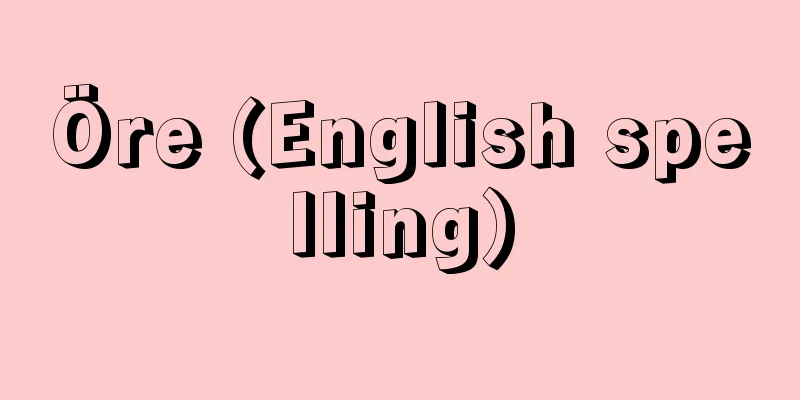Tadanori Okubo - Tadanori Okubo

|
A hatamoto (direct retainer of the Shogun) of the early Edo period, known affectionately as Okubo Hikozaemon, author of "The Tale of Mikawa." In 1575 (Tensho 3), he served Tokugawa Ieyasu when he was stationed at Hamamatsu Castle. His childhood name was Heisuke. He accompanied his older brother Tadayo in the attack on Takatenjin Castle and other battles during the time when the Tokugawa clan ruled over five provinces, and it is said that Tadanori's testimony was given more weight when the military merits of warriors were judged after the battle. During the Siege of Osaka, he was appointed as Oyarimugyo (spear magistrate), and later became Obatarimugyo (flag magistrate). He was given 2,000 koku of land in Saitama County, Musashi Province, which was part of the land of his nephew Tadachika, but when Tadachika was demoted, it was confiscated and Ieyasu gave him 1,000 koku in Nukata County, Mikawa Province, and later he was given another 1,000 koku in the same area, bringing his total to 2,000 koku. In storytelling, he is famous for his anecdotes and eccentricities, but they are not true. The basis for this is, for example, Tadanori's book "Mikawa Monogatari" (Tales of Mikawa), which criticizes the disregard for the Tokugawa clan's hereditary retainers and those with military merit, and the fact that the third shogun, Iemitsu, liked to call Tadanori, a warrior who had survived the Sengoku period, and listened to his stories. He died on February 29, 1631. He was 80 years old. He is buried at Chofukuji Temple in Ojiri Village, Nukata County (Okazaki City, Aichi Prefecture), where he was a fief. [Masuo Inorimoto] Source: Shogakukan Encyclopedia Nipponica About Encyclopedia Nipponica Information | Legend |
|
大久保彦左衛門(ひこざえもん)で親しまれている江戸初期の旗本で、『三河物語』の著者。1575年(天正3)浜松在城期の徳川家康に出仕。幼名平助。兄忠世(ただよ)に従って高天神(たかてんじん)城の攻撃など徳川氏の五か国領有時代の諸戦で数々の武功があり、合戦後の戦士の軍功の優劣の審査の際、忠教の証言が重んぜられたという。大坂の陣には御槍奉行(おやりぶぎょう)、のち御旗奉行に転じた。領地は甥(おい)忠隣(ただちか)の所領のうち武蔵(むさし)国埼玉郡で2000石知行(ちぎょう)したが、忠隣の改易の際没収せられ、改めて家康から三河国額田(ぬかた)郡で1000石、のち同所で1000石加増され2000石となる。講談では逸話、奇行の持ち主として有名だが、事実ではない。その創作の根拠には、たとえば忠教の著書『三河物語』で述べられている徳川氏譜代(ふだい)家臣や武功の士に対する軽視への批判、3代将軍家光(いえみつ)が好んで戦国生き残りの武人である忠教をよんで話を聞いた事実などがあげられる。寛永(かんえい)16年2月29日死去。80歳。知行所の額田郡尾尻村(愛知県岡崎市)の長福寺に葬る。 [煎本増夫] 出典 小学館 日本大百科全書(ニッポニカ)日本大百科全書(ニッポニカ)について 情報 | 凡例 |
>>: Tadasuke Okubo - Ookubo Tadasuke
Recommend
Fall webworm
A moth belonging to the order Lepidoptera and the...
"The Hero's Spring Umbrella"
...A play. Also called Otokodate Harusamegasa. Wr...
Shujiang Brocade
Originally, the term meant brocade made in the Ch...
Guayaquil (English spelling)
Its official name is Santiago de Guayaquil. It is ...
A letter of thanks
...Jointing is a method of joining boards togethe...
Jørgensen, J.
…Other writers outside Brandes’ camp were realist...
cum tempore
…This point is also related to the question of wh...
papillon de nuit (English spelling) papillondenuit
...It is said that when at rest, butterflies fold...
Utsu - Depression
...Area 7.85 km2, population 1,320 (1995). It is ...
Kingship
The title of king generally means the supreme sove...
Liudger
…Its main institutes include the Wilhelminian Uni...
Rice cultivation - Inasaku
The main purpose of this project was to produce ri...
Stammler, Rudolf
Born: February 19, 1856 in Alsfeld [Died] April 25...
Hanayama Temple
(Formerly "Kasanji") Another name for Ga...
Reed frog - Reed frog (English spelling)
A general term for small frogs with translucent sk...



![Innai [town] - Innai](/upload/images/67caf76c705e5.webp)





